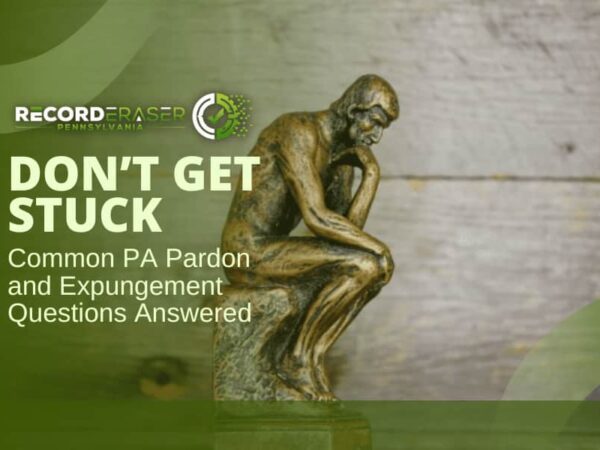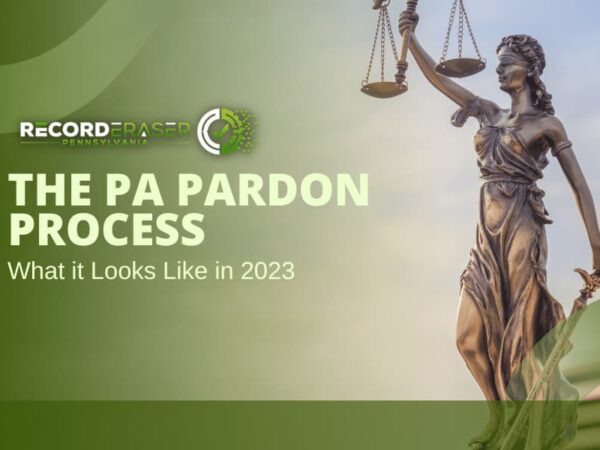
So, this blog is just to review the difference between Pardons and Expungement. They are confusing and misunderstood terms, so it never hurts to review.
We’ll start with expungement.
An expungement actually clears a criminal record. It is filed in the Court of Common Pleas in the county where the crime was committed. The things that can be expunged are clearly set forth in the statute – 18 Pa.C.S.A. 9122:
- A summary offense that is over five years old with no other prosecutions for at least a five-year period – is expungeable.
- A crime that received an ARD disposition, or some other disposition that is NOT a conviction – is expungeable.
- A crime that is indicated as ‘no-disposition’ for a number of years – is expungeable.
- Charges that were withdrawn or ‘nolle-prossed’ – are expungeable.
- A juvenile record after the person is over the age of 21, when the District Attorney consents – can be expunged. (There are some other criteria for juvenile cases).
- A conviction for Underage Consumption when the individual reaches the age of 21 – can be expunged.
- A misdemeanor or felony conviction that has been pardoned by the Governor of Pennsylvania – can be expunged.
Nothing else can be expunged.
I have heard of numerous clients who have filed their own expungement petitions on misdemeanor or felony convictions who were denied (of course), but with no explanation. The explanation is that the Judge does not have statutory authority to sign the expungement order if it is not one of the items listed above.
Pardons are necessary to clear everything else – misdemeanor and felony convictions. Pardons are filed on an official form issued by the Pennsylvania Board of Pardons. It must be accompanied by certain criminal records as well as the explanation for why the crimes occurred, what you have done with your life since then, and why you want the Pardon.
Once the Pardon is filed, it is reviewed by the Board of Pardons – 5 Board members appointed by the Governor for this purpose. The Board members are:
- Honorable John Fetterman, Lieutenant Governor
- Honorable Josh Shapiro, Attorney General
- Honorable Harris Gubernick, Corrections Expert
- Honorable John P. Williams, MD, Psychiatrist
- Honorable Marsha H. Grayson, Esquire, Victim Representative
The review process is currently taking about three years. The Board votes on each application. If your receives at least 2 of the 5 votes, you are given the opportunity to answer questions for the Board. After being interviewed the Board votes again. If at least 3 votes are in favor of the Application, it is sent to the Governor with a recommendation that the Governor issue a Pardon.
The Governor is the final vote. He does not have to grant the Pardon request. If and when he signs the Pardon, it is sent to the applicant. Now it is ready to have an expungement filed in the County of conviction(s).
A brief explanation and opinion about ‘Record-Sealing’.
I don’t like it. It hides small misdemeanors from the public view after 10 years, but the Commonwealth can still use it against the citizen for licensing purposes, carry permit denials, etc… It makes it harder to find the record. The conviction still needs a pardon to be removed completely. The Legislature was trying to do the right thing, but they should have made the records ‘destroyed’ instead of ‘Sealed’ in order to keep a copy for themselves.
FAQs:
Q – Do I need to have an attorney to file a pardon?
A – No. There are law firms that specialize in the preparation, filing and tracking of these applications over the 3-year period of review that can advise you for any interviews along the way. But the application itself can be prepared by the individual or a friend or a public service organization.
Q – How do I get started?
A – The application itself can be downloaded from the Pennsylvania Board of Pardons website:
Q – How long does it take?
A – The pardon process can take 3 or more years. As more people are trying to remove these criminal convictions, the backlog is increasing.
Q – Can the process be expedited?
A – The Board did create an expedited process to review marijuana related offenses, which includes a shorter review period (maybe as little as a year). But, there is no other process to expedite a Pardon request that is not marijuana related.
Q – Can I file my own pardon?
A – Absolutely. The form is free. The process to request the criminal records is fairly straightforward.
Q – Why should I use a lawyer?
A – Mark F. Walmer, Esq. has been filing Pardons for decades has the benefit of sitting through hundreds of presentations and making notes on how the Board reacted to various situations. He can also review your explanation for why the crime occurred to help you reach the right peak of accepting responsibility for the crime. He can help with the other explanations as well. Finally, when the application is filed, he can track it for years and prep you for any interviews you may need.




